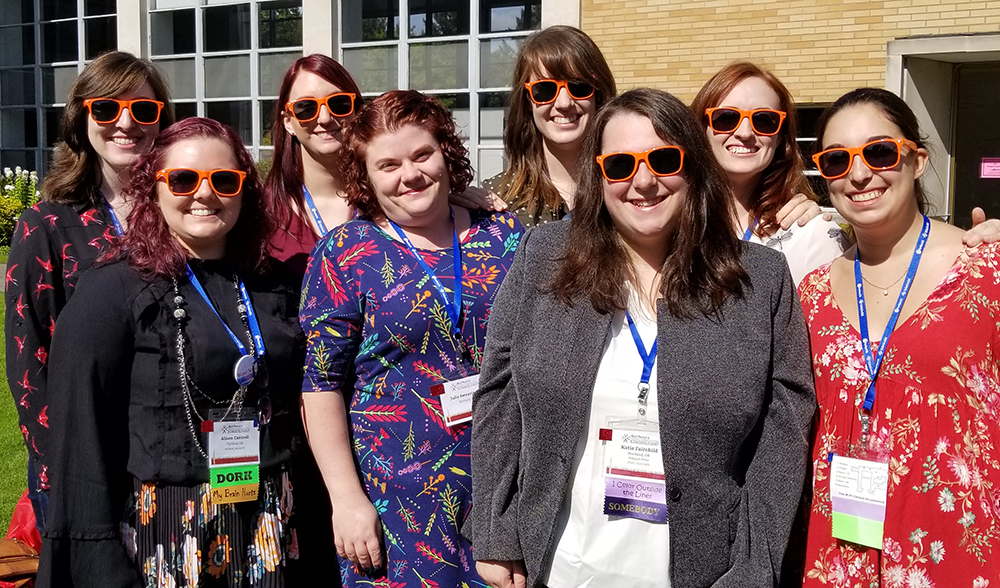I recently had the pleasure of attending my first professional editing conference, Red Pencil 6: Tracking Changes in Editing. This biennial conference is put on by the Northwest Independent Editors Guild and, according to the organization’s website, welcomes more than two hundred editors from the Pacific Northwest and beyond for a day of learning, networking, and camaraderie. This year’s conference took place on September 23 at Bastyr University in Kenmore, Washington. I was thrilled to be able to attend the event with seven other Ooligan editors.
Before entering Ooligan Press, I hadn’t met many editors in person, and I’d never seen any gather in a large group. This profession doesn’t allow for much peer-to-peer interaction; it generally requires hours of solitary work, much of which is done remotely. Red Pencil provided me the opportunity to meet and learn from other professional editors—most of whom have been in the industry for years and have a wealth of experience and insight to offer. The events I attended included a keynote address from Karen Yin of Conscious Style Guide and educational sessions such as Editing Graphic Novels as a Medium, Publishing Project Management, and Copyediting Fiction for Traditional Publishers.
The culminating event (and one of the reasons I was driven to attend Red Pencil in the first place) was a session led by Carol Fisher Saller, author of The Subversive Copy Editor and editor of the Chicago Manual of Style Online‘s Q&A. Saller spoke at length about the updates made to the seventeenth edition of the Chicago Manual of Style (CMOS), which was published only weeks before the conference was held. We base most of our style choices off of CMOS at Ooligan Press. It’s a giant (and sometimes intimidating) style guide, so it was helpful to have some of the changes and improvements in this edition pointed out by an expert. I was, for example, happy to learn that no chapter numbers had changed from the sixteenth edition and that many “fuzzy” sections had been clarified and included more examples. Here are a some more specific updates to CMOS 17 that Saller mentioned:
- CMOS 5.48 and 5.256: Guidance surrounding the use of “they” has relaxed to reflect the rising use of this word as a singular pronoun. While CMOS still doesn’t fully recommend the use of singular “they” in formal writing (and provides a few other ways to achieve bias-free language), it recognizes the word’s evolving role as a generic pronoun when referring to a person of unspecified gender. The guide also mentions that “they” and its forms are often preferred when referring to a specific, known person who does not identify with a gender-specific pronoun.
- CMOS 7.80 and 7.89: The recommended treatment for many technological terms has been updated. For example, “email” is no longer hyphenated and “internet” is lowercased.
- CMOS 14.34: The use of the abbreviation ibid. is now discouraged in favor of shortened citations. According to the guide, “Shortened citations generally take up less than a line, meaning that ibid. saves no space, and in electronic formats that link to one note at a time, ibid. risks confusing the reader.”
I could go on at length about the changes in CMOS 17 (and also include the many pages of notes I took from other sessions), but the takeaway here is this: if you are pursuing a career as a professional editor, conferences like Red Pencil are an incredible educational experience. In my case, managing the editorial department at Ooligan can often be a daunting task, but beginning this academic term fresh from Red Pencil has provided me with valuable industry knowledge as well as a renewed focus and drive to ensure the editorial process at our press is a success.

